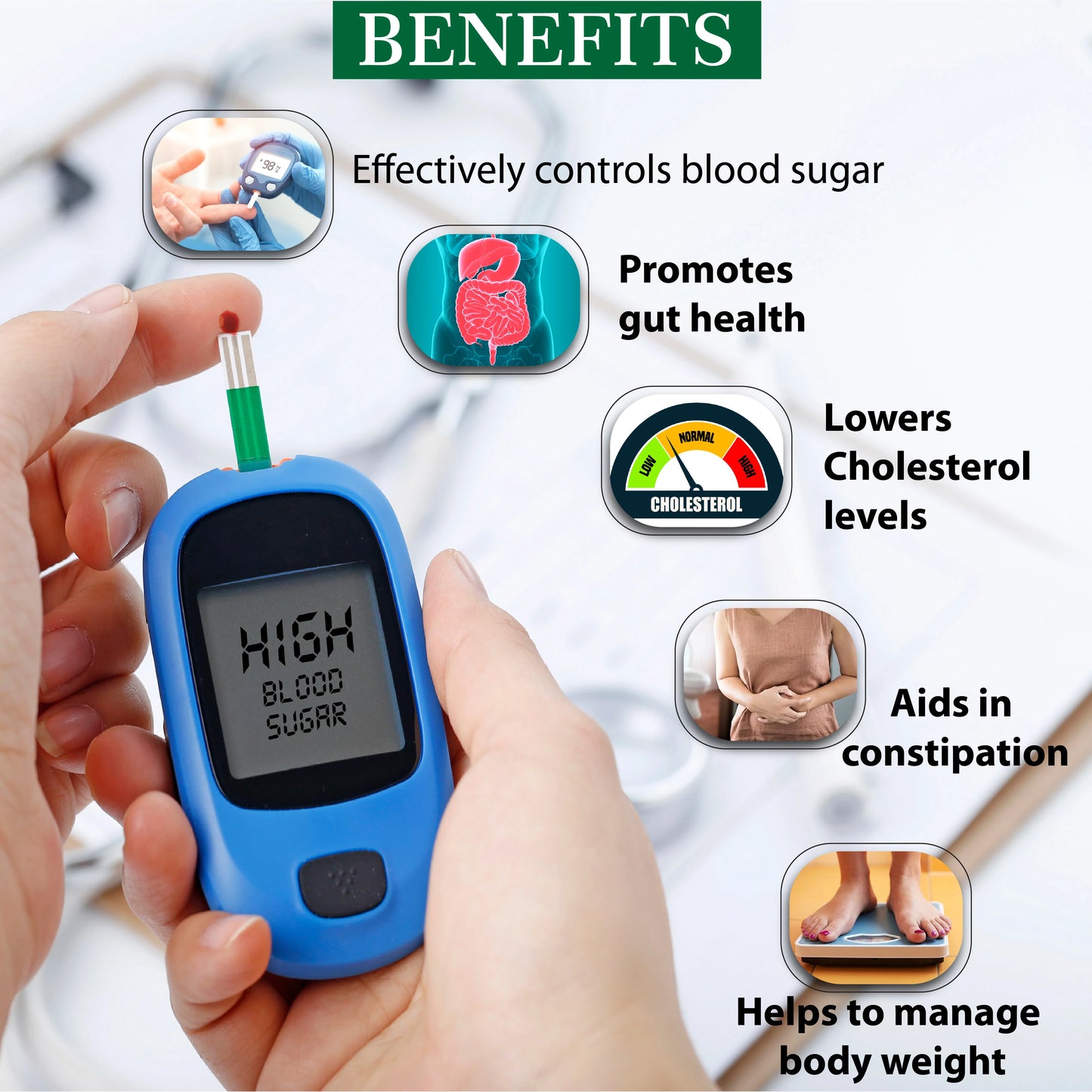Introduction: Side Effects of Diabetes
Diabetes is a condition that affects how the body manages blood sugar. Uncontrolled blood sugar levels can lead to both short-term symptoms and long-term complications, including fatigue, frequent urination, heart disease, nerve damage, and kidney problems. In this blog, we'll explore the common side effects of diabetes and offer insights into how to manage and prevent these issues for better health and well-being.
Short-Term Side Effects of Diabetes
1. High/Low Blood Sugar
- High blood sugar (hyperglycemia) causes excessive thirst, frequent urination, and blurred vision.
- Low blood sugar (hypoglycemia) leads to shakiness, dizziness, confusion, and sweating.
2. Fatigue, Thirst, and Frequent Urination
Uncontrolled blood sugar can cause fatigue and dehydration, leading to excessive thirst and frequent urination.
Regular blood sugar monitoring and proper management can help control these short-term side effects.
Long-Term Complications of Diabetes
1. Heart Disease
Diabetes increases the risk of cardiovascular disease due to high blood sugar levels that can damage blood vessels and nerves. This raises the risk of heart attacks, strokes, and high blood pressure.
2. Nerve Damage (Neuropathy)
Chronic high blood sugar can cause nerve damage, especially in the legs and feet, leading to tingling, pain, or numbness. In severe cases, it can lead to loss of sensation, making injuries more likely.
3. Kidney Problems (Nephropathy)
Diabetes can damage the kidneys' filtering system, leading to kidney disease or even kidney failure over time. Early detection and management are key to preventing severe damage.
4. Vision Problems (Retinopathy)
Diabetes can lead to damage to the blood vessels in the eyes, causing diabetic retinopathy, which can lead to vision loss or even blindness if untreated.
5. Infections and Poor Wound Healing
High blood sugar impairs the body’s ability to fight infections and heal wounds, making infections more frequent and harder to treat. Slow-healing wounds, especially on the feet, can lead to serious complications.
Proper blood sugar management, regular health check-ups, and early intervention can help prevent or manage these long-term complications.
Mental Health Impact of Diabetes
1. Depression
Living with diabetes can lead to feelings of frustration, anxiety, and sadness, increasing the risk of depression. The constant need for blood sugar monitoring, medication, and lifestyle adjustments can feel overwhelming, affecting emotional well-being. Additionally, chronic health concerns can contribute to a sense of hopelessness, which can worsen diabetes control.
2. Diabetes Burnout
Diabetes burnout occurs when individuals feel mentally exhausted by the daily demands of managing diabetes, such as monitoring blood sugar, adhering to a strict diet, and taking medications. This emotional fatigue can lead to neglecting self-care, skipping medications, or failing to monitor blood sugar regularly, which worsens the condition.
Addressing mental health is as crucial as managing physical health in diabetes. Seeking support from mental health professionals, diabetes support groups, and stress-reduction techniques can help individuals better cope with the emotional challenges of living with diabetes.
Managing Diabetes
1. Monitoring Blood Sugar
Regularly checking blood sugar levels is key to managing diabetes. Frequent monitoring helps you understand how your body responds to food, exercise, stress, and medication, allowing for better control of your condition. For those with Type 1 or Type 2 diabetes, using a glucometer or continuous glucose monitor (CGM) can help track and adjust blood sugar levels as needed.
2. Diet
A healthy, balanced diet plays a significant role in managing blood sugar. Focus on whole grains, proteins, healthy fats, and plenty of vegetables. Limiting foods high in refined sugars and carbs can help prevent blood sugar spikes. Portion control and eating at regular intervals also help maintain stable glucose levels. Consulting a dietitian can provide personalized meal plans.
3. Exercise
Regular physical activity helps improve insulin sensitivity and lower blood sugar levels. A mix of aerobic exercises (like walking, swimming, or cycling) and strength training (like weightlifting) can improve overall health and prevent complications. Aim for at least 150 minutes of moderate exercise each week, but always check with your doctor before starting any new fitness regimen.
4. Medication
For many people with diabetes, lifestyle changes alone aren't enough, and medication becomes necessary. Insulin is commonly prescribed for Type 1 diabetes, while Type 2 diabetics may use medications like metformin, GLP-1 agonists, or SGLT2 inhibitors to control blood sugar. Medications help manage glucose levels and reduce the risk of complications. Regular follow-ups with your healthcare provider are important to adjust treatments as needed.
By combining consistent monitoring, a healthy diet, regular exercise, and appropriate medication, individuals with diabetes can effectively manage their condition and reduce the risk of complications.
Shri Chyawan's Ayurvedic Solution
Our ayurveda experts have formulated an ayurvedic medicine for diabetics - Diabetes Care Kit. It helps to control your blood sugar levels. This Ayurvedic medicine is meticulously crafted to assist in maintaining balanced blood sugar levels, promoting overall well-being through natural ingredients.
Shri Chyawan Diabetes Care Kit
The Kit contains four types of ayurvedic medicine that play a major role in the management of blood sugar levels:
- Madhumoksh Vati
- Chandraprabha Vati
- Karela & Jamun Ras
- Giloy Juice
1. Madhumoksh Vati - Shri Chyawan Ayurveda's Madhumoksh Vati Supports healthy blood sugar levels in the body and removes the problems caused by it.
Ingredients: The main ingredients used in Madhumoksh Vati are vasant kusumakarra, madhumeh harirasa, neem panchang, jamun beej, gudmar, karela beej, talmakhna, jalneem, amla, and baheda.
How To Use: If blood sugar level of patient is 200mg/dl, then he/she is required to take 2 tablet, twice a day, before meal or as directed by the physician.
2. Chandrabha vati - Shri Chyawan Ayurveda's Chandraprabha vati Supports healthy uric acid levels and may contribute to overall wellness.
Ingredients: It consists of Amla, Sandalwood, Daruharidra, Devdaru, Camphor, Cinnamon, and Pipal.
How To Use: Consume 1 tablet at night before going to bed. or as Directed by the Physician.
3. Karela Jamun Ras - Shri Chyawan Karela Jamun Ras supports metabolic health and may contribute to balanced blood sugar levels in the body and Jamun contains jamboline and jambosine, which are believed to support metabolic health.
Ingredients: The main ingredients of this juice/ras are Karela and Jamun juice.
How To Use: Consume 10ml, twice a day, after 1 hour post lunch and dinner or as Directed by the Physician.
4. Giloy Ras: Giloy Ras is an herbal and ayurvedic supplement known for its potential health benefits, including supporting overall well-being and Supports healthy blood sugar levels in the body.
Ingredients: It consists of juice extracted from Giloy.
How To Use: For children 5ml-10ml,
For adults 10ml-20ml, thrice a day. or as Directed by the Physician.
Conclusion
Managing diabetes requires consistent effort in monitoring blood sugar, maintaining a healthy diet, exercising, and taking prescribed medications. While diabetes can lead to serious complications, proactive care can reduce these risks. Mental health is also important, as conditions like depression and burnout can affect overall well-being. With early detection, regular check-ups, and proper management, individuals can live a healthy and active life despite diabetes.
Free Consultation with our Expert Doctor- 📞📞 95162 64444








